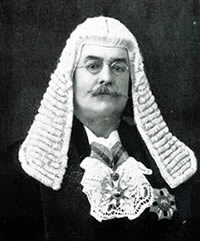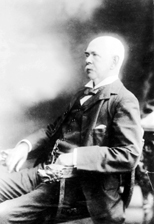136 Lapsed bills
-
A bill which lapses by reason of a prorogation before it has reached its final stage may be proceeded with in the next session at the stage it had reached in the preceding session, if a periodical election for the Senate or general election for either House has not taken place between the 2 sessions, under the following conditions:
-
If the bill is in the possession of the House in which it originated, not having been sent to the other House, or, if sent, then returned by message, it may be proceeded with by resolution of the House in which it is, restoring it to the Notice Paper.
-
If the bill is in the possession of the House in which it did not originate it may be proceeded with by resolution of the House in which it is, restoring it to the Notice Paper, but such resolution shall not be passed unless a message has been received from the House in which it originated, requesting that its consideration be resumed.
-
A bill so restored to the Notice Paper may be proceeded with in both Houses as if its passage had not been interrupted by a prorogation, and, if finally passed, shall be presented to the Governor-General for assent.
-
If a motion for restoration of a bill to the Notice Paper is not agreed to, the bill may be introduced and proceeded with in the ordinary manner.
Amendment history
Adopted: 19 August 1903 as SO 235 (corresponding to the first part of paragraph (1)) but renumbered as SO 234 for the first printed edition
Amended: 30 August 1905, J.54 (original SO 234 replaced by SOs 234A, 234B and 234C, corresponding to paragraphs (1) to (3))
1989 revision: Old SOs 243 to 245 combined into one, structured as three paragraphs and renumbered as SO 136; language modernised and expression streamlined; terms such as “Public Bills” replaced with “bill” and “Her Majesty’s assent” replaced with “assent”
Commentary

President Baker has a leading role in shaping the standing orders (Source: Commonwealth Parliamentary Handbook)
In 1903, a much shorter version of this standing order was adopted, after amendment, consisting of the lead-in to paragraph (1). Senator Symon (FT, SA) described its application in the following terms:
I understand that when the new Parliament meets next year – that is, new in one sense, though not new as to the Senate in another sense – a Bill partly completed this year could not then be taken up at the stage it had reached. A Bill partly completed last session, however, could under such a standing order have been taken up this session.[1]
The Standing Orders Committee considered the question of lapsed bills further and conferred with its counterpart committee in the House of Representatives, presenting a joint report on 18 August 1905.[2] The joint report recommended that both Houses adopt replacement standing orders on lapsed bills that would provide for proceedings on bills interrupted by a prorogation to be resumed at the stage they had reached in the previous session only at the request of the originating House. The replacement standing orders were adopted on 30 August 1905 after a debate that largely focused on a tangential issue raised by Senator Symon, and during the course of which President Baker confessed his lack of sympathy with the new standing orders and his opposition to them in the Standing Orders Committee. As a supporter of the principle of the “greatest possible consideration” being given to any legislative proposal, these procedures for truncated consideration did not appeal to him though he accepted the will of the majority, would give effect to them if they were adopted and admitted that they were, at least, an improvement on the old standing order.[3]

Senator Josiah Symon (FT, SA) made a significant contribution to the 1903 debate on standing orders dealing with ligislation, ofter clashing with President Baker (Source: National Library of Australia)
In the earlier years after Federation, Parliament was regularly prorogued and there would be several sessions in each Parliament, between elections. In later years it has become uncommon for Parliament to be prorogued in between elections and a session now lasts for the life of a Parliament in most cases. In this situation, SO 136 is of little significance for government bills as it does not permit the revival of lapsed bills if an election intervenes. It is, however, of relevance for private senators’ bills, many of which are restored to the Notice Paper at the beginning of a new Parliament, following the suspension of standing orders such as this one.
There are, nonetheless, several precedents. For further details and discussion of the principles involved in the revival of bills, see Odgers’ Australian Senate Practice, 12th ed., Chapter 12, under “Revival of bills”. For earlier precedents, see Australian Senate Practice, 6th edition, pp.514–17.